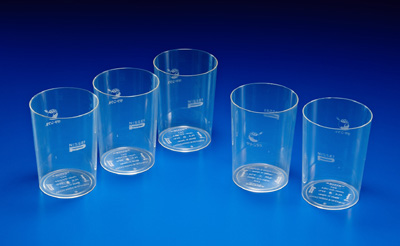What's New
Molding Solutions to the Global Market to be Revealed at K2019
- 2019/8/6 Exhibition Information
- NISSEI PLASTIC INDUSTRIAL CO., LTD. will deliver technological solutions to simplify molding processes for the customers and eco-friendly technologies that reduce environmental footprint at the K2019. K 2019 will take place from October 16~23 in Düsseldorf, Germany.
The latest injection molding machines and molding systems will be on display for demonstrations, proposing a variety of new ideas to the visitors.
The main theme:
Injection for Innovation
NISSEI’s theme for this year’s K2019 is “Injection for Innovation.” NISSEI has sold over 130,000 machines since its inauguration. They have been passing down their cultivated expertise to future generations while offering a variety of innovative technological solutions brought by ongoing research and development of new technologies and improvement of existing technologies. You can expect to learn more about possible solutions to your daily challenges as well as inspiring you with new industrial trends, such as eco-friendly technologies, automations, labor-saving technologies, plant monitoring with IoT, downsizing of molding equipment, and integrated molding.
The following summarizes NISSEI’s exhibit:
1. Eco-Friendly Technologies
As a part of NISSEI’s ongoing effort to establish sustainable zero-waste societies and to reduce carbon footprints to combat climate change, a PLA (Polylactic Acid) injection molding machine system will be displayed. The technologies used in this system materialize a practical use of plant-based eco-friendly PLA materials as well as expanding the envelope for its applications.
Microplastics and plastic debris in the oceans are becoming a world-wide problem, and the principals of 3Rs (Reduce, Reuse, and Recycle) have been discussed to make effective uses of the resources. NISSEI has actively been promoting the uses of plant-based biodegradable plastics to tackle the issue from a different angle in addition to the 3Rs approach.
Biodegradable resins can be composted and biodegraded to return to nature. Therefore, it will prevent the plastic wastes from entering the oceans. PLA is considered as one of the best prospects among the biodegradable resins to replace petroleum-based plastics in the future. However, it possesses low heat resistance (heat resistance: around 60 degrees Celsius), low shock resistance, poor fluidity and mold releasability. It is difficult to be used as a material for deep or thin-wall parts, and its uses in injection molding are limited.
A new French law will require all disposable tableware to be made from 50% or more biologically-sourced materials that can be composted by 2020 in order to reduce marine plastic debris. Other regulations to reduce plastics bags and disposable containers have been enforced in many countries.
To offer a solution to this worldwide movement, NISSEI developed practical thin-wall container molding technologies that can replace petroleum-based disposable containers with 100% PLA.
To make practical use of these technologies, NISSEI teamed up with Mr. Michio Komatsu, a renowned engineer possessing abundant knowledge and patents in PLA molding.
In standard PLA molding processes, it is prone to have short shots in thin-wall parts since the fluidity of PLA is very poor. NISSEI came up with a new technology to mix supercritical carbon dioxide into molten PLA to improve the fluidity of injected material. It makes injection molding of the world’s thinnest level (0.65mm) thin-wall container possible while achieving super high transparency.
2. IoT Technologies
NISSEI developed molding factory production central monitoring systems and has been promoting “Visualization of Factory” since 1984. Since then, NISSEI has been making technological breakthroughs to meet the needs of this high-tech and high-speed digital information age. As a solution to Industry 4.0 and IoT, NISSEI is proposing “N-Constellation,” a technology that utilizes IoT technology-based automatic inspection system to produce higher quality products, contributing to establishing Smart Factory for the customers. NISSEI has also been accelerating their effort to develop an industry 4.0 enabled controller “NISSEI 4.0,” which is one of their code names for the IoT technology development.
At K2019, “Visualize to Support, Connect to Utilize” is the theme for their IoT technologies. Using an injection molding machine as a core, it forms a network of various auxiliary equipment. It does not simply visualize and connect, but it effectively utilizes collected data to make a formation of profitable smart factory possible.
Main features:
1) Newly developed TACT5 controller with OPC UA comes standard, European MES communication standard Euromap77 capability (basic), and easy to cope with the peripheral device communication standard Euromap82.x/86/79.
2) Networking capability with takeout robot, material feeder, etc. thanks to Euromap communication capability and EtherCAT.
3) By above, settings of connected peripherals can be managed together with a molding condition. It reduces workload for operators, improves efficiency, and eliminates the use of cables, such as couplers and wires (reduces environmental load). It also makes remote maintenance possible to reduce downtime. Optimizing molding conditions, eliminating molding defects, improving productivity, predicting replacement timing for consumable parts, and diagnosing peripherals by AI will be possible in the future to form a “Smart Molding Factory.”
NISSEI booth: Hall 13 C93 
Samples of thin-wall PLA cups
- Return to 'Exhibition Information'
